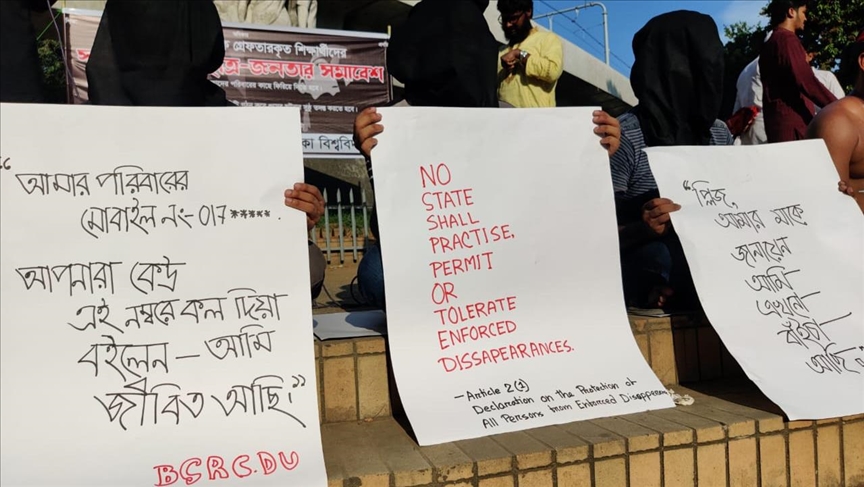News Flash

DHAKA, Jan 20, 2025 (BSS) - Survivors of enforced disappearances faced the stigma of criminal charges while many lost their livelihoods due to the stigma, according to a report of the Commission for Inquiry on Enforced Disappearances.
"Survivors faced the stigma of criminal charges- whether real or fabricated-and were frequently labelled as criminals," the report read.
Under Sheikh Hasina's regime, the victims of enforced disappearances faced systematic denial of justice and deprivation of their essential rights.
Efforts to locate and recover missing persons were repeatedly obstructed by the authorities, who showed little to no intention to investigate allegations or uncover the truth.
Law enforcement agencies frequently refused to register complaints or initiate proper investigations, often justifying their inaction with claims of "orders from above".
Instead, the report says, they dismissed the disappearances with baseless assertions, such as victims having gone into hiding to evade creditors or other personal matters.
In cases where victims reappeared, they were often subjected to further injustice, being brought before courts under fabricated charges, frequently under the Anti-Terrorism Act, 2009.
The judicial system offered no meaningful redress for the victims either.
'Habeas Corpus' petitions filed in the High Court Division of the Supreme Court rarely progressed beyond initial filings, leaving the victims without meaningful legal recourse.
The few court rulings on cases of enforced disappearances served more to legitimise the status quo than to provide justice, the report reveals.
The commission found that lower courts were heavily reliant on law enforcement agencies, many of whom were found involved in the crime of enforced disappearances, further trapping the victims in a cycle of institutional betrayal and impunity.
About the plights of the victims of enforced disappearances, the report says, for those who returned alive, their ordeal continued unabated.
"Victims often endured ongoing threats, silencing them from sharing their experiences or seeking accountability."
Their fear was intensified by the absence of due process, the lack of judicial safeguards, and the systemic impunity granted to the perpetrators.
These accusations not only tarnished their reputations but also hindered their ability to rebuild their lives, according to the report.
"The social and economic repercussions of their enforced disappearances were devastating for the victims. Many lost their livelihoods due to the stigma attached to enforced disappearances and the challenges of reintegration into the society after captivity," the report says.
The commission revealed that the victims' interactions with the legal system often depleted their resources, leaving them financially incapacitated.
It suggested that the cumulative psychological, social, and financial toll on the victims highlights the urgent need for restorative justice, systemic reforms, and comprehensive support to them.